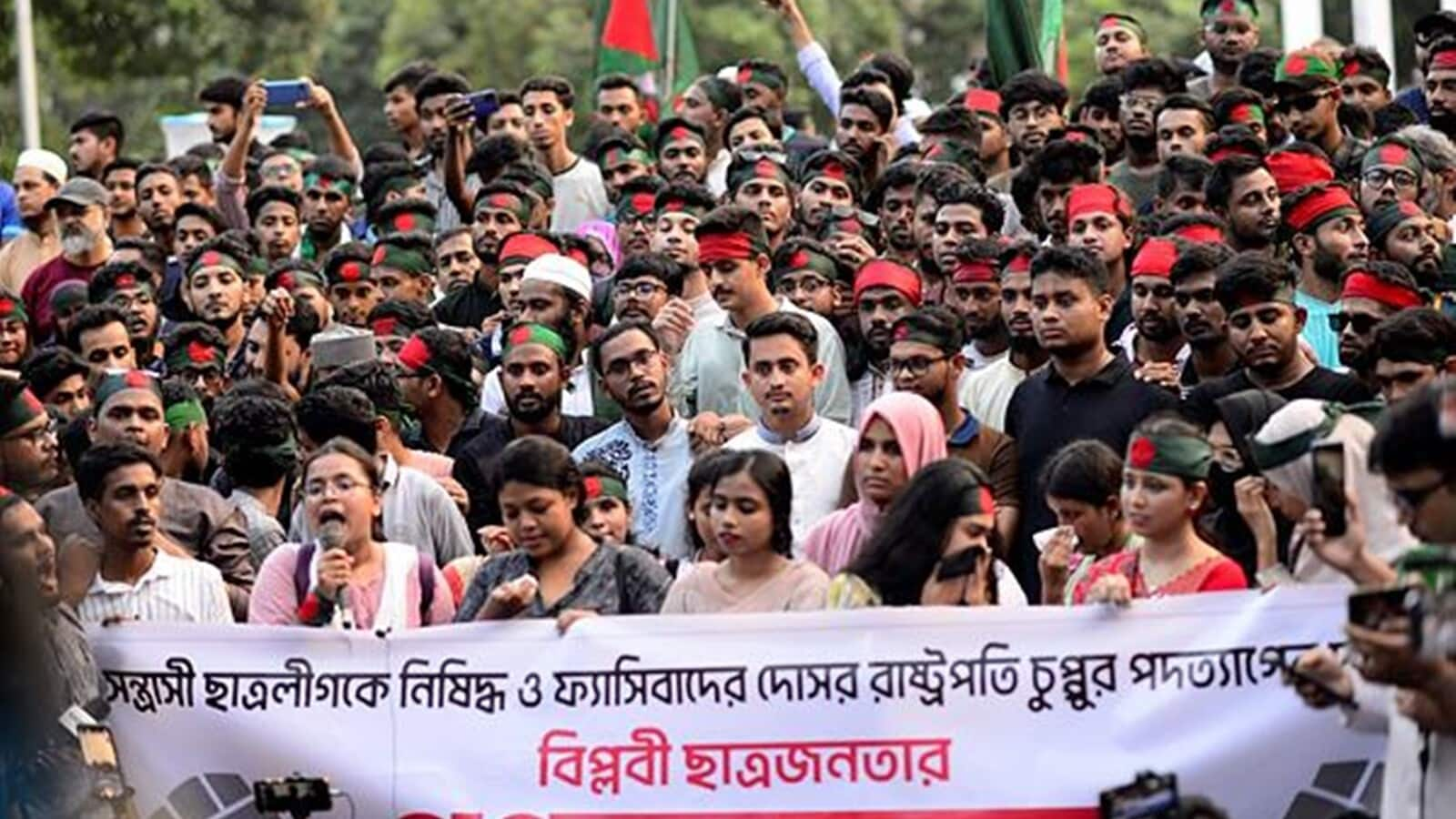
Why students in Bangladesh are protesting again
What's the story
Bangladesh is witnessing fresh protests, with demonstrators demanding the resignation of President Mohammed Shahabuddin over his controversial remarks about former Prime Minister Sheikh Hasina. The Anti-Discrimination Student Movement, which played a key role in Hasina's ouster, is spearheading these protests. They have given a seven-day ultimatum for Shahabuddin's removal and are demanding the repeal of Bangladesh's 1972 Constitution.
Demands outlined
Protesters demand Shahabuddin's resignation, constitution repeal
Hasnat Abdullah, a coordinator of the protest movement, said their main demand is "the immediate repeal of the 'pro-Mujib 1972 Constitution,' which has kept Chuppu (the president's nickname) in office." The protesters accuse Shahabuddin of being an ally of fascism and genocide. Nasir Uddin Patwari, another protest leader, said that "the president is an ally of fascism. He was in favor of genocide."
Accusations leveled
Shahabuddin's contradictory statements spark controversy
The protests were sparked by Shahabuddin's conflicting statements about Hasina's resignation. He had first claimed to have received her resignation letter during a televised address on August 5. However, he later claimed he had no documentary evidence of her resignation. This inconsistency has resulted in accusations of "falsehood" against him, with Asif Nazrul, Law Affairs Adviser of the interim government, accusing Shahabuddin of violating his oath of office.
Ouster details
Hasina's ouster and the role of US interference
Hasina had blamed her ouster on United States interference, and claimed she resigned to prevent violence against students. Her son, Sajeeb Wazed, clarified she never officially resigned due to time constraints during the protests. The president's office has discouraged public disputes over Hasina's resignation and departure. Constitution expert Shahdhin Malik noted debate over documentary evidence is unnecessary given the Supreme Court's opinion on forming an interim government after Hasina's ouster.